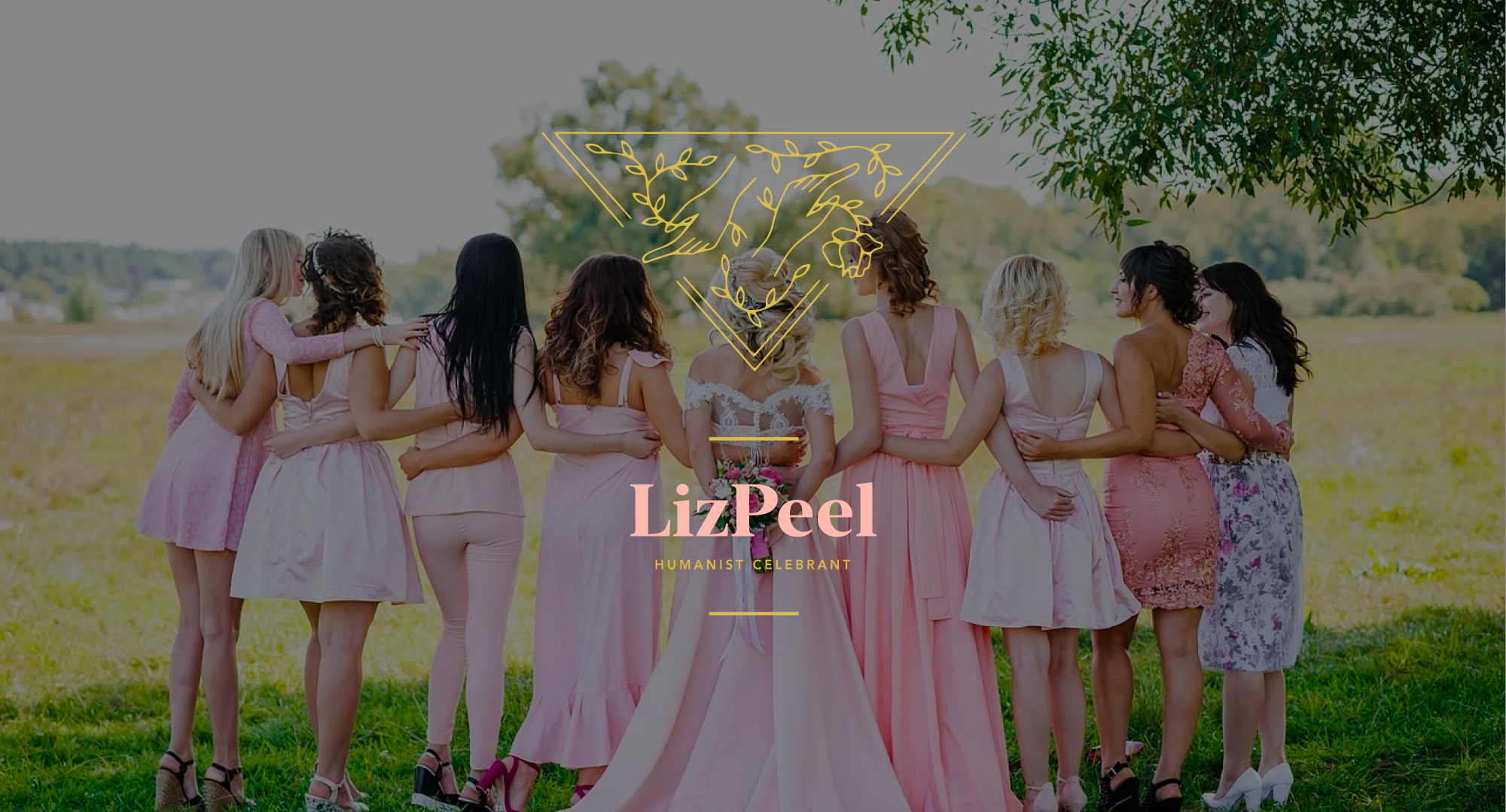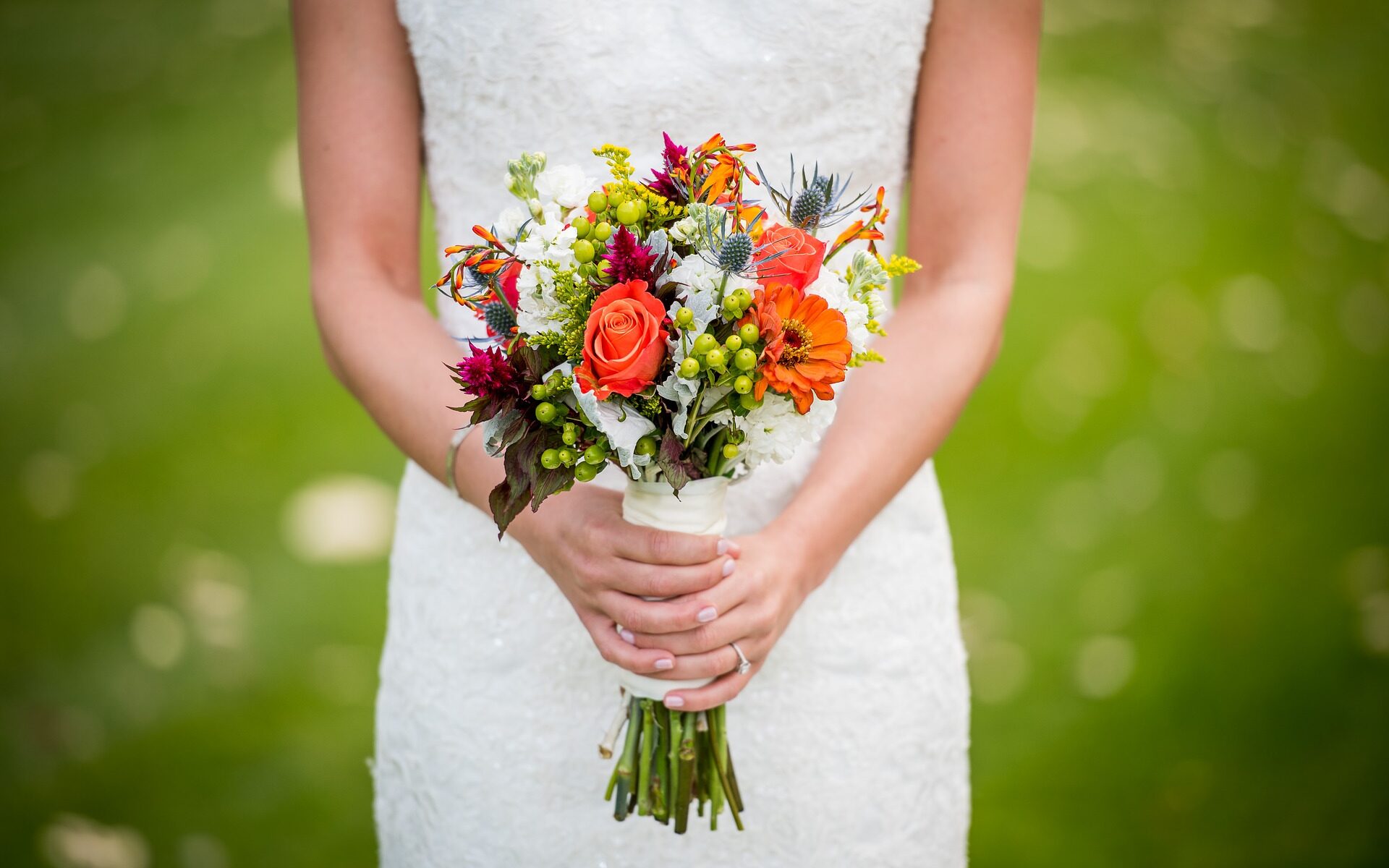Can we have our wedding at my parents’ house?
Yes. You can have your wedding celebration anywhere you fancy, indoors or out. Northern Ireland has some of the most beautiful venues…from stately homes, to your Mum’s front room, to a field with great sunsets, or your favourite walled garden…just let me know. Check out my Instagram feed for some inspiration if you’re still thinking about venues.
We’d like to get married outdoors. Is this crazy?
Absolutely not. Indeed al fresco weddings – whether in public places or at private venues – often have a wonderfully relaxed and intimate feel to them. That said, in case the Northern Ireland weather lives up to its reputation, we always advise there is a plan B: this might be an indoor venue close by or simply the provision of lots of umbrellas! I can talk this through with you. Just one caveat…sound quality (even with an amp) can be poor in very ‘open’ outdoors spaces. But I can advise.
We want to get married abroad. Can we take a celebrant with us?
Yes, of course. I love a trip. I will expense my travel and subsistence costs and will agree total fee (to cover travel/away time) in advance with you. The legal aspects of your marriage can happen before (or after) the overseas ceremony – and I can take care of those in Northern Ireland.
What happens at a wedding ceremony?
Each ceremony is written specifically for the couple; there is no set format. But as a guide, a typical wedding might include readings or poems, information about the couple and why they are choosing to marry and perhaps some music. The couple will make vows or commitments to each other and often exchange rings.
Does having a humanist wedding involve a lot of work?
It definitely takes more time and thought to arrange a humanist ceremony than a standard church or civil wedding, but it’s well worth the effort. You will end up with a ceremony that reflects the two of you, what you value and your hopes for the future, and an occasion that is truly unique and personal. An added bonus is that most couples find the planning process interesting and fun too. For example, one recently married couple commented:
“I wholeheartedly recommend a humanist wedding. It is so customisable that it can surmount any boundaries of religion, culture or language. As with anything bespoke it does take a bit more time to consider material you would like the ceremony to contain, but it is so worth it. You will have a ceremony that is 100% you.”
How much does a humanist wedding ceremony cost?
Humanists UK recommended fees are between £350-£1000 – but my fees are typically around £400-600 depending on location/travel time. The range reflects that weddings can vary tremendously.
What does the fee include?
The celebrant’s fee will cover:
- A planning meeting to discuss the ceremony in depth
- Drafting and editing a personal script
- Attendance at a rehearsal at your chosen venue
- Delivery of the ceremony on the day itself
How long does a humanist wedding last?
It depends on what you want to include, but as a guide around 20-45 minutes. This is one of the aspects we can discuss.
Do you offer same-sex weddings?
I certainly do. Indeed, Humanists UK celebrants have been conducting ceremonies for same sex couples for at least two decades and were instrumental in successfully campaigning for legal same-sex marriage in Great Britain and Northern Ireland.
We got married abroad and want another ceremony for friends and family here. Can you do this?
Yes, I’d be happy to create such an occasion for you – in fact many wedding ceremonies take place under similar circumstances. I can make the humanist ceremony a wedding in itself or think of it as a celebration of your marriage – whatever suits you best. That said, in practice most couples in such circumstances choose to make promises to each other and (re)exchange rings.
We’re not actually humanists – or at least we don’t think we are. Can we still have a humanist wedding ceremony?
When they look at humanism, many people discover they are actually humanist in outlook without having realised it.
If you are non-religious and look to reason, empathy, and compassion in order to live an ethical and meaningful life, then you’re in the right place: you’re amongst those with a humanist outlook, and my wedding ceremonies offer you a non-religious, personal, and meaningful way to celebrate your marriage.
Guests at my wedding are religious and I don’t want them to be offended. Will a humanist wedding be okay?
I recognise that nearly every ceremony is attended by guests of different faiths and of none, and feel passionately that everyone present should feel comfortable and involved.
The focus of your humanist wedding will be on the two of you and your relationship and what you value. Underpinning it all will be the humanist view of long-term partnerships as being strongest when built upon support, equality and honesty. It’s difficult to imagine anyone would have a problem with that! Indeed on many occasions people of religion tell me how moving they find humanist celebrations to be. We’re all human, after all.
Do you have any rules about the ceremony being photographed and video recorded?
I have no rules about this and am concerned only that you get the pictures you want. In fact, many photographers love humanist weddings as there is a lot of interaction for them to capture, particularly since couples often face their guests during the ceremony.
We love the idea of a personal wedding but we don’t know where to start.
That’s very common and not a problem at all. I will lead the process and can give you as much help and guidance as you need to work out what would suit you and your situation. I can advise on readings, music, promises and a whole series of big and small issues that help the day to go well.
We’d like to involve our guests in some way. Can we do this?
Absolutely. It’s great when guests are really involved in a marriage rather than simply witnessing it. I will be happy to suggest ideas.
Can we have music during the ceremony?
Yes. There is real poignancy in music, whether it’s a live performance, listening to something recorded, or perhaps having something for everyone to sing along to! I can suggest some choices for you to consider.
I’m worried I’m going to cry during the wedding.
A personal wedding is an emotional occasion and it’s not at all unusual for there to be both tears and laughter during the ceremony. This is fine – it’s a big moment and you’re allowed to show your feelings! I will be there as a reassuring presence (and also to pass tissues if necessary).
Many couples find that the rehearsal helps them prepare for the big day emotionally as well as practically. You may be surprised by how relaxed you feel! But if you do cry, it’s absolutely fine.
We’d like to include a ritual from another culture. Is this okay?
Certainly. Humanist ceremonies are non-religious but there are many rituals from other cultures that can be incorporated, such as Chinese tea ceremonies or Celtic traditions. I will be delighted to discuss your ideas.
Can we write our own vows?
Personal vows are often one of the highlights of a humanist wedding so, yes, I absolutely encourage you to write or choose your own words, and will give whatever help and support you need to do so.
Do we have to write our own vows?
No, not if you don’t want to. I can provide a range of sample vows for you to look through and you might want to use some of these or adapt them slightly: it’s entirely up to you. But if you do decide to write your own vows, I can help you to get started with these and, if you want me to, I will be happy to act as a sounding board for your ideas.
We really like traditional vows. Can we use these?
Yes. Many people feel there is a real gravitas to traditional church words, for example, and these can be adapted slightly to make them fitting for a non-religious ceremony. Parts of the registry office words are popular too and, if you wish, these can be incorporated into your vows or during the ring exchange, if you are having one.
I hate public speaking and I am really worried about it. Can you help?
Actually there is no requirement for you to say anything at your wedding if you really don’t want to. That said, most people feel that the public declaration of vows or promises is one of the most important parts of the ceremony. If one or both of you are worried about speaking, the easiest way to accommodate this is for your promises to be written in the form of questions to which you each answer ‘I do’ or ‘I promise’. The promises themselves can still be personal, but spoken by me.
Will we be legally married after a humanist wedding?
Yes. As a result of a legal judgement approved Humanist UK celebrants (like me) can legally marry couples just like Registrants or religious officiants. I’ll discuss the legal and celebration angles when we meet.
Do we have to be legally married if we want a humanist wedding?
No. There are various reasons why people might want the public statement of commitment and celebration without legally registering their partnership as a marriage: celebrants are sensitive to this.
How far in advance do we need to book a celebrant?
There’s no rule but I do get booked up quite a while in advance, especially on Saturdays during the summer. If I’m booked on your date I will always be happy to recommend someone else.
We want to make sure we are comfortable with a celebrant before we decide to book them. Can we meet in person?
It’s important you have a chance to check that we’re a good match for each other. Most celebrants will be happy to meet up without obligation for a chat and a cup of coffee. If you’re further afield, an initial phone call or a chat on Zoom works well.
What should I ask a celebrant when we first meet?
Feel free to ask me whatever you want to know – I won’t be offended! Or you can ask me to talk about how I put a ceremony together to get a sense of how I work. Or let me know your initial thoughts about what you want from the occasion and let the conversation go from there.
What do celebrants wear?
Quite a few people ask this, but fear not, there are no cloaks or robes! Instead, I’ll be smartly, professionally and appropriately attired. If you’ve got a particular dress code for the occasion do let me know.
We live overseas but will be returning to Northern Ireland for our wedding. Can we work together from a distance?
Yes, that’s fine. I am used to working with couples who live abroad with communication being via WhatsApp, Zoom and email. You will probably want to meet in the flesh before the big day if possible; this often happens at the wedding rehearsal a day or so before.

